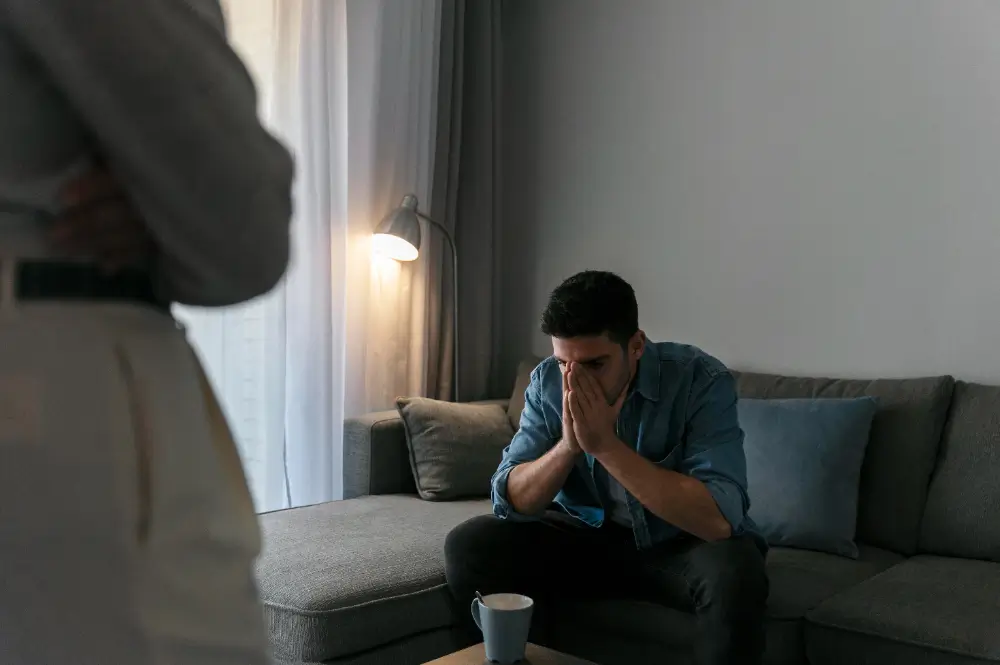Men’s mental health has become an important topic in recent years. Despite the growing awareness, many men still avoid seeking help for mental health issues. Programs aimed at improving men’s mental well-being play a vital role in providing support, but how effective are these programs? Let’s explore some key statistics and insights about men’s mental health and the resources available to address it.
Mental Health Challenges for Men
- Mental Illness Prevalence
- About 1 in 5 men in the U.S. experience mental health challenges annually, according to the National Institute of Mental Health.
- Depression affects over 6 million men in the U.S. every year.
- Suicide Rates
- Men account for nearly 80% of suicides worldwide.
- Middle-aged men are at the highest risk for suicide.
- Anxiety Disorders
- Over 3 million men in the U.S. suffer from anxiety disorders, such as generalized anxiety and panic disorders.
Barriers to Seeking Help

Many men face obstacles when it comes to addressing mental health issues:
- Stigma: Around 40% of men say they don’t talk about their mental health due to fear of judgment.
- Cultural Expectations: Traditional ideas about masculinity discourage men from expressing emotions or seeking help.
- Access to Care: Lack of awareness and limited access to mental health services prevent many men from finding support.
The Role of Men’s Mental Health Programs
Men’s mental health programs aim to address these challenges by providing resources and support. Here are some key findings:
- Effectiveness of Therapy Programs
- Cognitive Behavioral Therapy (CBT) has been shown to reduce symptoms of depression and anxiety in over 60% of participants in mental health programs.
- Group therapy programs provide emotional support and help men feel less isolated, with 75% of participants reporting improved emotional well-being.
- Workplace Mental Health Programs
- Employers offering mental health initiatives see a 25% reduction in absenteeism and improved productivity.
- Around 50% of men in workplace programs report better stress management.
- Online Therapy and Apps
- Digital platforms, such as therapy apps, have grown in popularity. They provide flexibility and privacy, attracting more men to seek help.
- Around 70% of users of mental health apps report a reduction in symptoms within three months.
- Community and Peer Support Groups
- Peer-led support groups have been shown to increase men’s willingness to open up about their struggles.
- Studies show that 80% of participants in support groups feel more connected and less isolated.
How Programs are Changing Lives
- Suicide Prevention Initiatives: Programs that focus on suicide awareness have been instrumental in reducing suicide rates among men.
- Veterans’ Mental Health Services: Over 4 million men who are veterans benefit from targeted mental health programs addressing PTSD and depression.
- Youth Outreach: Early intervention programs for teenage boys improve mental health outcomes and help prevent long-term challenges.
The Future of Men’s Mental Health Programs
The growing focus on men’s mental health shows promising progress:
- Increased funding for mental health research and programs is helping to develop more effective treatments.
- Public awareness campaigns are breaking down stigma and encouraging men to seek help.
- Technology, like virtual therapy and mental health apps, is making support more accessible
What Men Can Do
If you’re struggling with mental health, you are not alone. Here are steps to take:
- Reach Out: Talk to a trusted friend, family member, or mental health professional.
- Explore Programs: Look into therapy, community support groups, or online resources tailored to men’s mental health.
- Focus on Self-Care: Regular exercise, proper nutrition, and mindfulness practices can improve mental well-being.
Final Thoughts
Men’s mental health programs are making a significant impact by providing support and breaking the silence around mental health challenges. While progress is being made, there’s still much work to do in encouraging more men to seek help and in making these programs accessible to everyone.
As a men’s fitness and wellness trainer, I believe in the strong connection between mental and physical health. Together, we can create a world where men feel empowered to take care of their minds and bodies, without fear or stigma.
Let’s start the conversation and support one another on this journey to better mental health.






